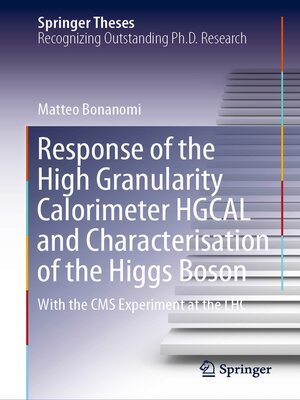Response of the High Granularity Calorimeter HGCAL and Characterisation of the Higgs Boson
ebook ∣ With the CMS Experiment at the LHC · Springer Theses
By Matteo Bonanomi

Sign up to save your library
With an OverDrive account, you can save your favorite libraries for at-a-glance information about availability. Find out more about OverDrive accounts.
Find this title in Libby, the library reading app by OverDrive.



Search for a digital library with this title
Title found at these libraries:
| Library Name | Distance |
|---|---|
| Loading... |
This book highlights the most complete characterization of the Higgs boson properties performed to date in the "golden channel," i.e., decay into a pair of Z bosons which subsequently decay into four leptons. The data collected by the CMS experiment in the so-called Run-II data-taking period of the LHC are used to produce an extensive set of results that test in detail the predictions of the Standard Model.
Given the remarkable predictive power of the SM when including the Higgs boson, possible new physics will require even more extensive studies at higher statistics. A massive upgrade of the detectors is necessary to maintain the current physics performance in the harsh environment of the High-Luminosity LHC (HL-LHC) project, expected to start by the end of 2027. The CMS Collaboration will replace the current endcap calorimeters with a High Granularity Calorimeter (HGCAL). The HGCAL will be the very first large-scale silicon-based imaging calorimeter ever employed in ahigh-energy physics experiment. This book presents the results of the analysis of the test beam data collected with the first large-scale prototype of the HGCAL. The results of this analysis are used to corroborate the final design of the HGCAL and its nominal physics performance expected for the HL-LHC operations.







